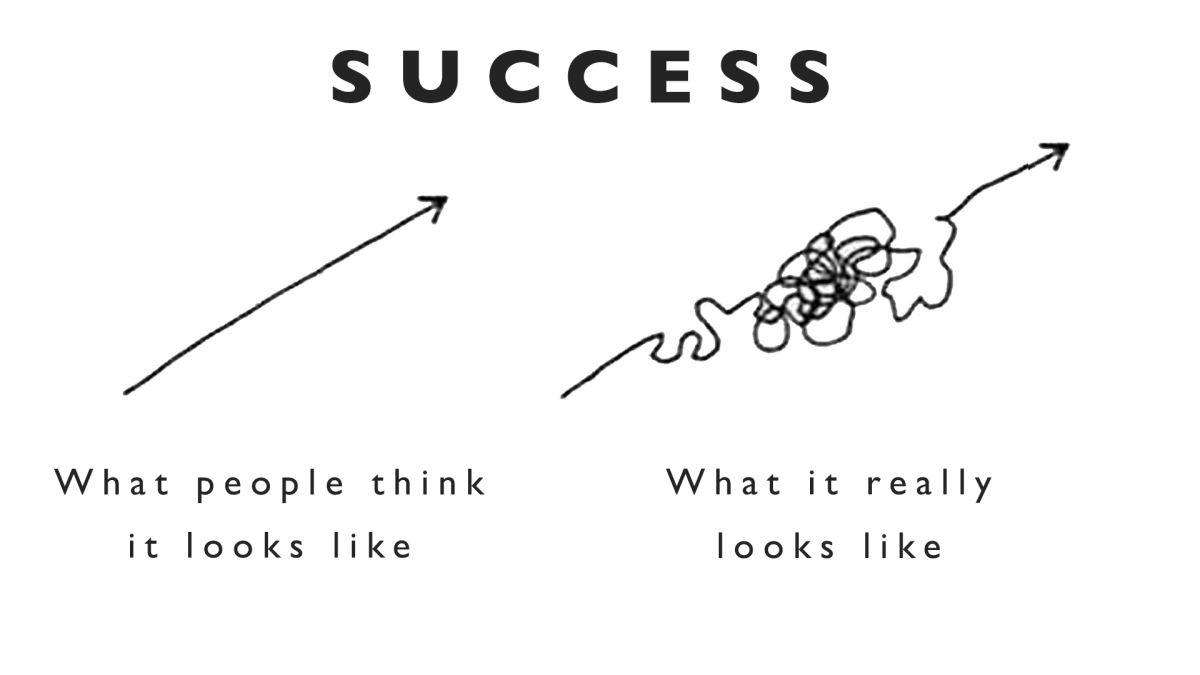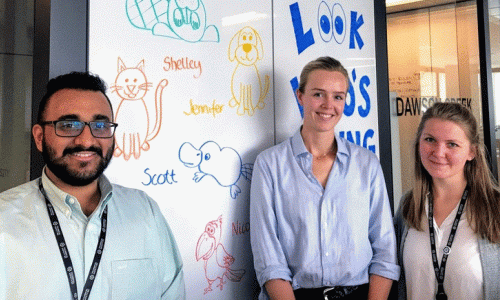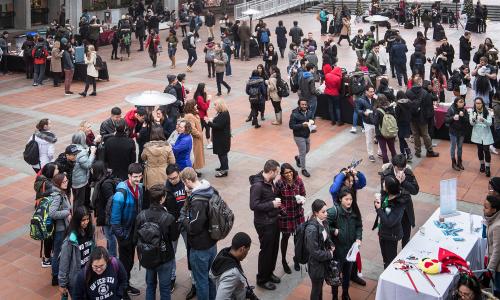
As a student of SFU’s Sustainable Energy Engineering program, a significant career motivation of mine is to have an impact on the sustainable development of our future. When I was first seeking my first co-op position, I was open to working with any organization where I could grow my skills while doing just that – but I didn’t expect to find an opportunity in research. I’ve spent the last eight months working with SFU’s ΔE+ (Delta-E-plus) research group on fulfilling projects focused on identifying barriers and opportunities to vehicle electrification in BC. In this post, I’ll go over what I did during my position, what doing research is like as a co-op student, and why you may or may not want to pursue a research position yourself.
ΔE+ is a research group that focuses on the development of open-source Energy Systems Models: software tools which simulate aspects of the energy system with the goal of producing results which can enhance policy development. These models cover everything from planning investment into electricity generation and transmission, investigating the interactions between energy, land, water, and climate, simulating the operation of power systems with renewable energy, quantifying the impact of sector electrification like transportation and heating, and more. My position as a research assistant was to work with several PhD students on two related projects. One involved expanding a model of electric and combustion vehicles with the goal of quantifying the life cycle environmental and economic impacts of vehicle production and use. The other involved developing a model of electric vehicle use, charging, and interaction with the power system to identify the infrastructure requirements and policy opportunities associated with the electrification of the BC vehicle fleet. During my work I developed skills related to reading and writing academic literature, data science with Python and Excel, and sharing results in the form of presentations and reports.
As this was my first co-op job as a research assistant, I found that academic research work can be quite different compared to a position in the industry. Research can involve a straightforward application of existing solutions to new contexts or can involve creating something entirely new. In my case, much of the work I did was somewhere in the middle. I found myself working on abstract tasks, more on the side of defining open-ended problems and figuring out how they might be solved rather than implementing solutions. Projects often begin in a highly abstract state where only the broad goals are defined, and it’s up to researchers to utilize existing knowledge to create a methodology which can meet those goals in a sufficiently novel way. Like any endeavor which goes off the beaten path, the path is rarely straight, and so research work requires a high degree of adaptability as the project changes, through redefinitions of the original goals or through changes in methodology as certain methods are unable to be adapted to new contexts.

For these reasons, the academic research work environment has less pressure to produce results quickly. Instead, exploratory work is encouraged, and setbacks are expected. The relationship between researchers is cooperative and there is a lack of a strong hierarchy, as the goal of a research group is to facilitate progress on everyone’s research goals, because it achieves more than what could be done alone. The presence of a diversity of researchers from different backgrounds and topics of study allowed me to learn about many more aspects of energy systems modelling than what I worked on directly.
Overall, my experience working as a research assistant was incredibly positive and changed how I think about my future career, opening options in graduate studies that I did not consider before. The job of a research assistant requires applying creativity to abstract problems, adaptability to changing circumstances, and the will to read plenty of academic papers. If you prefer an environment that is cooperative and flexible where you can work on projects which have the potential to influence policy, then I highly recommend seeking a position in research.














